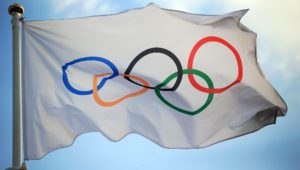Foul weather is a fact of regatta organisers’ life. They dread waking up on the morning of the big gig to a howling gale and the possibility of refunding entry monies and cancellations (Pity the Boston Marathon organisers).
FISA isn’t above such matters either. They have worked hard to create alternative ‘fair’ forms of racing that allow a regatta to run even when teh weather is bad and waters are rough.
Here’s a quick snippet from an email I got from Jon Winter USA LM2x
This year, there is a little change to how things work. There will be heats, but the heat will run as a time trial. It is meant to be a practice for the event that the weather creates unfair racing conditions. So, we race Italy, USA, Serbia, Austria, Poland, Spain are in our “Heat”.
Basically, they start a boat every 30 seconds and have a timing station at the start and finish…best four times of our group go on to the quarter finals.
I am not sure why FISA made the change but it’s what they’ve always done in Duisberg for the events with large entries. I’ve seen it done in Penrith, Australia when it was really windy there; it was during a junior trans-tasman series that they ran alongside their world champs time trials. Not surprisingly the local crews seemed to always have the better of the two lanes that were available . . .
Why would FISA make this change now?
Speaking to a coach friend we didn’t think that Bled was one of those unfair courses (like Amsterdam was until recently and Duisberg) but Eton Dorney is known to be aligned perpendicular to the prevailing wind . . . aaah, do we start to see a glimmer of method to their madness?
Perhaps FISA need to have this ‘alternative’ race method tested and on the rule books before the Olympics in 2012 in case Dorney turns out its usual side wind and disadvantages the lanes closest to the spectators.
What do you think?






